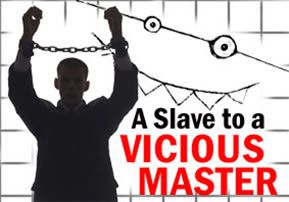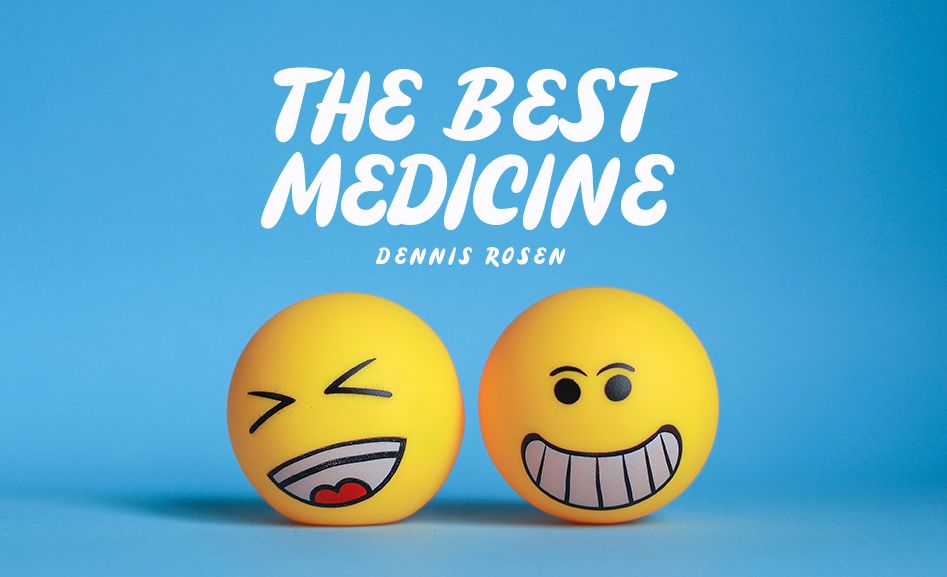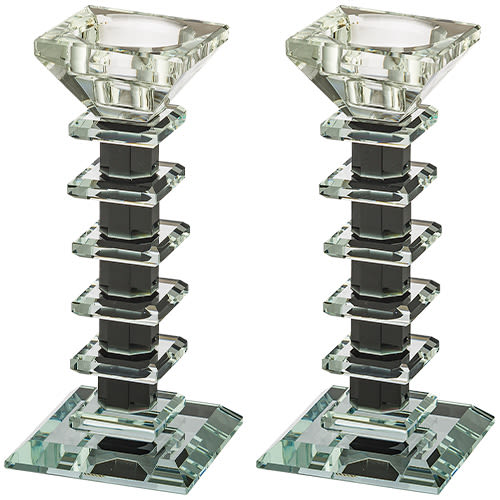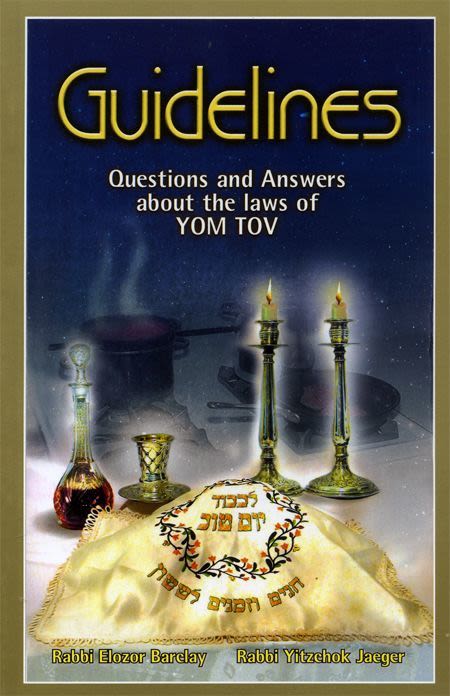
A Slave to a Vicious Master
Happiness comes from within, and is independent of outside substances and stimuli. Take away an alcoholic's bottle; he won't be happy for long.

People often ask me what’s wrong with casual smoking of hash or marijuana. I’ll tell you what’s wrong – these “light” substances are, to a certain extent, even more dangerous than heavy substances, because the problems they pose are not immediately obvious. A heroine addict is not likely to marry, and if he does, it probably won’t be an orthodox Jewish marriage. But a person who smokes marijuana appears to function normally. He usually holds down a job and gets married. Yet he will be greatly challenged in attaining Shalom Bayit, (marital harmony), may have greater difficulty in educating his kids properly, and find it almost impossible to serve Hashem (God), with his entire heart. The marijuana eventually affects his brain, and he may even reach a point where a joint takes precedence over his wife and children – and even Hashem! Marijuana causes people to become lethargic, lose their initiative, shirk responsibility. Basically, it causes people to lose their ability to function properly. Ultimately, they become slaves to a vicious master – their habit.
People who are slaves to their habits give the habit precedence over all else. As a result, they may behave cruelly and take extreme measures to fulfill their lusts, even to the point of letting their wives and children go hungry. Alcoholics are known to be self-indulgent; even when they don’t have the money to pay the electric bill, they come up with money to purchase beer and wine.
Addicts – even functional ones, whether hooked on alcohol or drugs – see only themselves. They are the arch-prototype of egotists. Whenever I encounter a married substance abuser, I tell him categorically – it’s either your wife or your habit. You can’t have both. A wife needs a husband who’s a giver – addicts are takers. They have no qualms about taking what doesn’t even belong to them to satiate their urges.
In Likutey Moharan, Rebbe Nachman of Breslev writes that an intoxicated person forgets all the mitzvot and everything that Moshe (Moses) commanded us to do. Rather than having the light of mitzvot on their limbs, they have darkness. Holiness and impurity can’t reside on the same limb at the same time. So when holiness leaves, darkness walks in the front door and seizes control of a person, reducing him to a level that is lower than the level of a beast (Likutey Moharan II:26). That’s why being a practicing Breslever and substance usage, are mutually exclusive. Substances destroy a person’s connection to Hashem.
I once saw a man that was hooked on “light” narcotics; his son had excruciating pains in the abdomen, and was apparently suffering appendicitis. If God forbid the appendix ruptures, the entire body is flooded with toxins. Rather than calling an ambulance and avoiding possible damage, he picked the boy up, placed him in the back seat of his car, and started speeding toward the hospital. On the way, the father figured that he’d have to be at the hospital for a number of hours, but meanwhile, he didn’t have any more of his garbage substance. With his 12 year-old wailing in the back seat, he drove to the other end of town – a full 20 minutes out of his way – to the junkie’s house to pick up a fix. What could be greater cruelty?
Rebbe Natan of Breslev explains that substances bring a person to spiritual slumber. As such, when a person is under the influence of substances, the soul leaves him. The spiritually lifeless body becomes a prisoner to impurity, much like a dead person. Even concerning a more “innocent” substance, such as wine, Reb Noson says that no one can drink properly because the substance alters reason and brings a person to forsake truth and to acknowledge lies.
Nadav and Avihu
Who is greater than Nadav and Avihu, Aharon (Aaron) the High Priest’s sons? Our sages teach that Nadav and Avihu entered the Holy Tabernacle after they drank wine, and they burned incense there that Hashem had not commanded them to burn.
My beloved and esteemed teacher Rav Shalom Arush shlit”a explains that Nadav and Avihu wanted to use wine as a mind-expander, so that they could have a heightened Divine experience. Instead, they incurred the death penalty by doing things that Hashem had never commanded them to do (Mishkan service is only according to Hashem’s explicit command, leaving no room for initiatives).
Nadav and Avihu were not lightweights. Our sages say that they were on the level of Moshe and Aharon. Yet, they failed to understand that Hashem wants us to serve Him with clear heads and clear souls.
Recently, I’ve encountered young men who’ve made an ideology out of using mind-expanding drugs while learning Gemorra or Kabbala. This is not what Hashem wants! Hashem does not want us to defile our systems with substances, because they destroy the soul.
The so-called “mind-benders” – Alcohol and drugs – are two of the evil inclination’s oldest and favorite traps. Once a person develops the slightest dependence on a mind-affecting substance, he becomes a slave in some way to the evil inclination. A slave can’t have two masters; therefore if a person is a slave to the evil inclination, he can’t be a complete servant of the Almighty.
Why are alcohol and drugs called “mind-benders”? Try this simple experiment: Take a plastic pipe or rubber hose, and bend it. Notice that light cannot pass straight through a bent pipe. That’s exactly what substances do to the mind – they bend it, so that the Divine Light can no longer pass directly through it.
Substances and spiritual awareness don’t mix. Happiness and spiritual awareness go hand-in-hand. Therefore, if a person persistently consumes alcohol or drugs, he or she will not be happy. Why? Happiness comes from within, and is independent of outside substances and stimuli. Take away an alcoholic’s bottle; he won’t be happy for long. On the contrary, he’ll probably erupt like a medium-size volcano.
Rebbe Nachman taught us that there’s no despair in the world. If you know someone with a substance problem, start talking to him about Hashem and emuna (faith). Emuna is the best substance rehabilitation aid there is.











Tell us what you think!
Thank you for your comment!
It will be published after approval by the Editor.